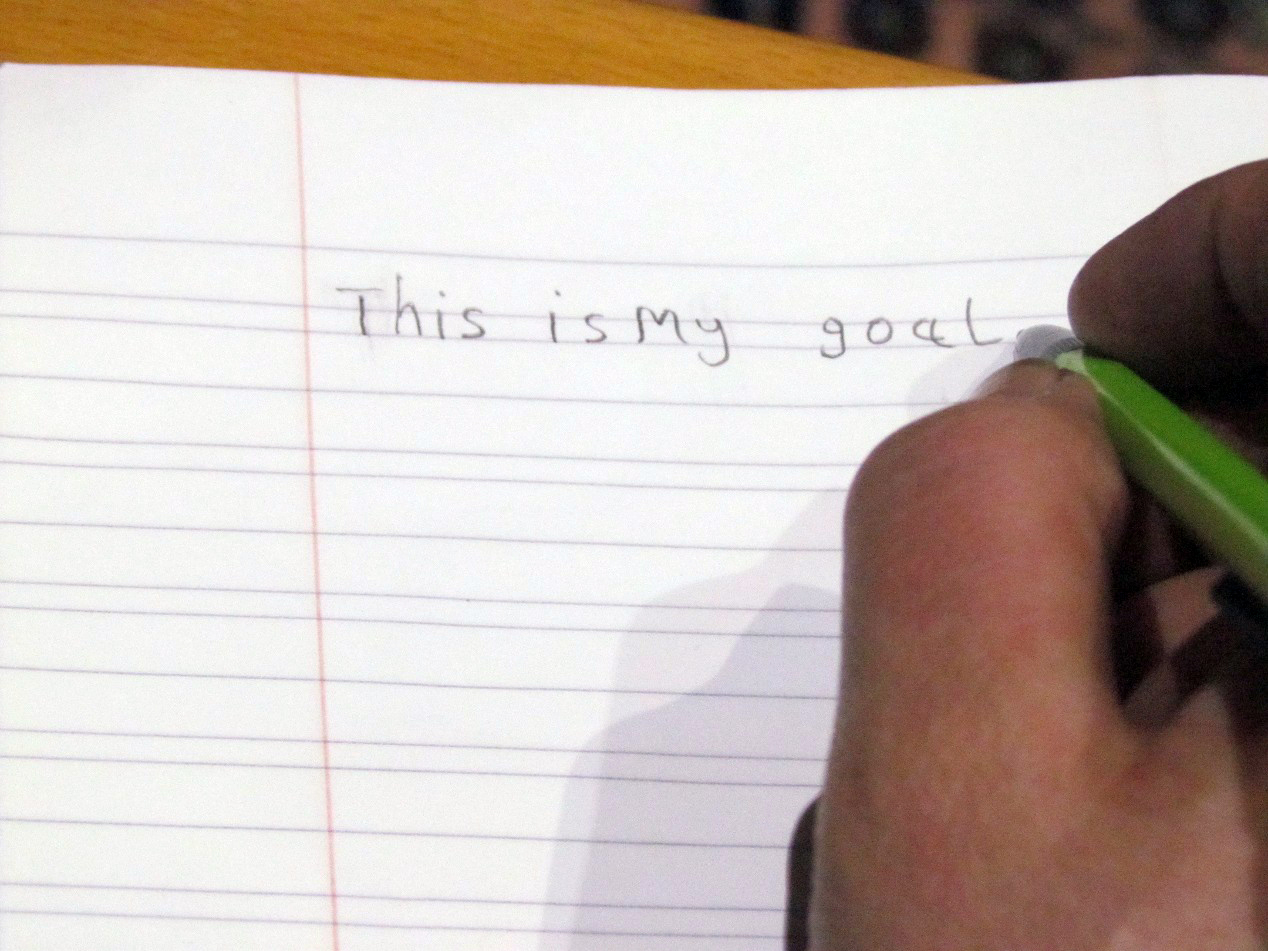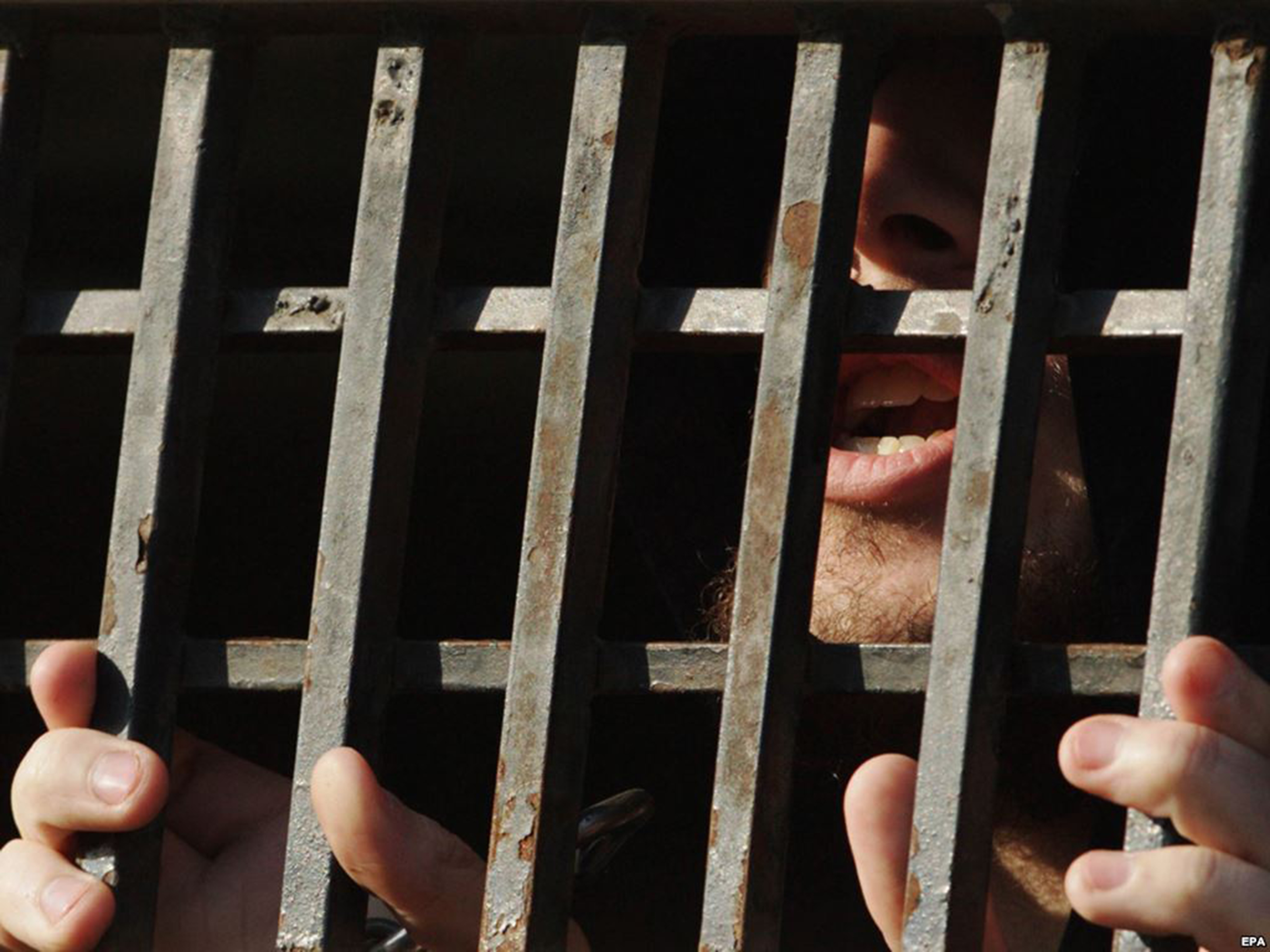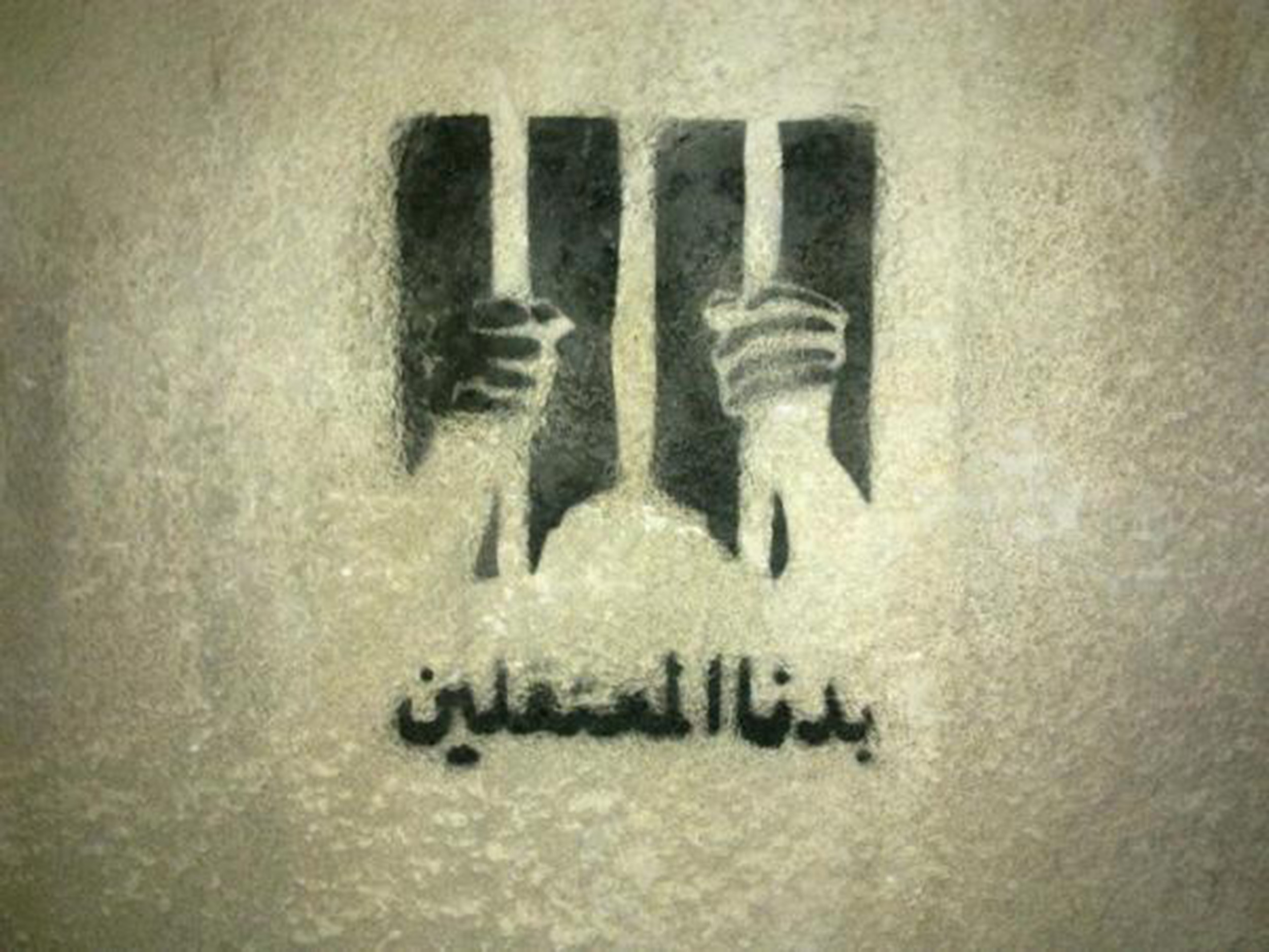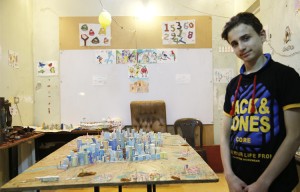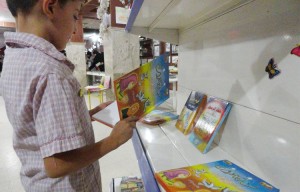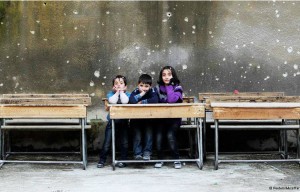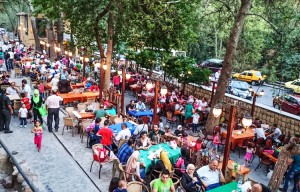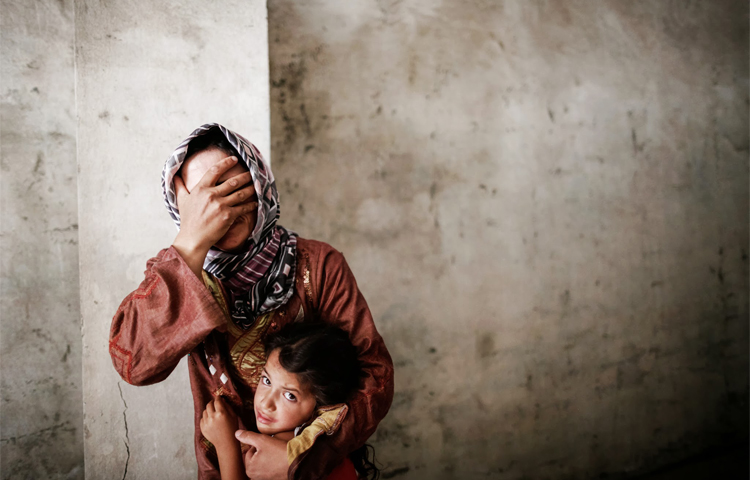
“I want death, and it’s avoiding me”
Suicide Attempts behind Closed Doors in Besieged Suburbs of Damascus

Sun. July, 5, 2015 – Issue #176
Hanin Alnaqri – Enab Baladi
“All the people I needed or wanted them to be around left me; even death. I want death, but it does not want me”.
After her third failed suicide attempt, Mouna recounted her story to Noor, a Syrian activist working in psychological support center in the besieged Eastern Ghouta (Damascus Suburbs). The story was a familiar one to Noor after two years of work in the center.
Noor says she heard similar stories from several girls lately; she fears these incidents may spread and become a phenomenon.
Escaping… to Death
Mouna is in her late twenties; siege prevented her from pursuing her he master’s degree in Damascus University. She lives in an “intense” environment in her family’s house, where hatred and lack of understanding prevails. She used to escape this environment by going to the university every day, and now she escapes it by going to work. “I wake up at 6 am and I do the house work, then I head to my work. I am from a well-off family, yet I work two jobs, and if I could find a way to stay out more, I would”.
Mouna says her deep hatred for her family justifies her behavior, “Neither of my parents love me; they want me to be among them only to be a servant for my brothers. I don’t have a sister to trust with my secrets and feelings, and my brothers treat me badly. I don’t have anyone here in this house”.
Living with her family feels like “hell” for Mouna. She cannot tolerate it anymore, and she prefers “hell in the afterlife” to living like this.
The verbal abuse Mouna has been subjected to in her family, who constantly call her names, is the cause of her “psychological scars”, said Noor, the psychological assistant.
“They constantly call me ‘ugly’ and now I believe that I am”, said Mouna.
Mouna’s engagement was cancelled under her family’s pressures as they provoked disagreements and problems. She blames her family for pushing her fiancé away. “He was a good man; he loved me, but my family treated him ill. When we broke up after 9 months, my family said that we should have broken up long ago, because I am ‘ugly’ and he did not even love me”.
One time after another, Mouna struggled with her family until she decided to end it with an overdose, “yet I was unlucky; my friends managed to save me from the death I am seeking”.
“I won’t give them the chance to save me next time”, asserted Mouna decisively, and rhetorically added, “Is it possible for someone to be filled with so much bitter hatred for themselves?”, and right away answered, “I am”.
Seeking Mercy
While paramedics were trying to save her, 18-year-old Ruwaida was begging them not to, pleading that “I want to my Mum and sisters to have my share of food”.
Regime forces arrested her father two years ago; and ever since, she became the family’s only breadwinner.
She had to take a cleaning job at a learning center in Eastern Ghouta. The nature of her job reflected negatively on her; she could not accept it or deal with it, “people look down on me; I can’t bear their looks or their barely disguised contempt. I don’t have a certificate that would’ve helped in finding a better job with a higher salary”.
Ruwaida says that her family managed to live on her salary, until her sister got married, and the new brother in law moved in to live with them and share their income. “I am being stripped of my dignity in this job, and yet my Mum always asks me to work more to provide more for them; I give them my share of the food, and they ask for more”.
As pressures Ruwaida is put under heightened (the prolonged detention of her father, financial troubles, in addition to the psychological impact of her job), she attempted suicide twice in one week; “I know committing suicide is prohibited in Islam; yet continuing in this harsh life is impossible. I want to commit suicide, and may God admit me to His Mercy”.
A Glimpse of Hope
Maysaa’s story started differently and ended differently; she was born deaf, and throughout her twenty years, she attempted suicide several times, and her mother saved her and sought all the help she could get to prevent her from trying again.
“She is deaf and cannot speak, yet she is the heathiest of her siblings, who were all born with disabilities, because of the familial relation between my husband and I”, said her mother.
Despite being relatively healthy, compared to her siblings, Maysaa compares herself to her “healthy” peers, and things got worse when many of her agemates got engaged or got married. “Both my family and my husband’s family contributed to this; it is true that she can’t hear their harsh words about her disability and her appearance, but she can feel it and see it in their looks, and she cries”, added the mother.
When the mother realized she could not monitor her child all the time, or save her every time she attempted suicide, she turned to a special-needs center, and asked them to help her. “I asked the manager to assign any task to my daughter; she is smart, and she needs something to divert her from thinking of death and from comparing herself to physically healthy people”.
The solution proved effective; right after her first day at the center, Maysaa’s determination to live and to accomplish was visible to the staff there. Om Muhammad, the manager, said “Maysaa is a volunteer here as we all are, yet she is very enthusiastic about her work her. She is particularly talented at embroidery and handicrafts. She and the others at the center created a warm atmosphere”.
“Saving suicidals is not just about saving them in the last minutes; it is about addressing the motive for their suicide attempts”.
Noor, the activist, believes that “the society usually contributes to keep suicide attempts obscure, because people think it is an evidence of lacking integrity and faith”.
“When I contacted a media organization in order to shed light on this issue, they refused saying that we live in a Muslim society and we don’t have suicide attempts” said she, “this is how fear of people’s talks becomes an obstacle in the way, preventing people from treating the issue”.
Experts Say:
Asmaa Rushdi, a psychological specialist, stressed the need to support those who attempt suicide. “Suicidals require solid and tremendous support during the first few weeks, or even months, after attempting suicide, during which they are most vulnerable to attempting it again”. She added, “Helping them heal depends on their environment, including their family or trusted friends”.
Rushdi believes that the way the society views suicide further complicates the situation; “people judge and criticize” raising awareness is a must in order to change this way of thinking, and to be able to give this important matter the due attention.
“There is a lack of statistics and in-depth studies on suicide in Muslim societies, as if it is a trivial matter”, noted Rushdi.
Three stories of three girls, whose motivation to die overcame their motivation to live; and it is still unclear who decided to quit knocking at death’s door, and who still lie in wait for an opening to sneak in… or rather out.
Meanwhile, many more similar stories are circulated in whispers, and many others are kept secrets behind locked doors.
اذا كنت تعتقد/تعتقدين أن المقال يحوي معلومات خاطئة أو لديك تفاصيل إضافية أرسل/أرسلي تصحيحًا
إذا كنت تعتقد/تعتقدين أن المقال ينتهك أيًا من المبادئ الأخلاقية أو المعايير المهنية قدم/قدمي شكوى
-
تابعنا على :



